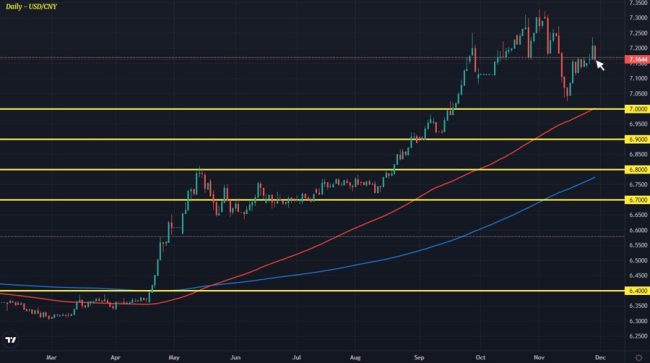There was a mild dip in the yuan to the news here, with USD/CNY moving up from 7.1660 to 7.1750 before coming back down now to around 7.1640 levels on the day. Chinese equities are still largely holding on to gains and the overall risk mood is keeping more positive as we look towards European trading today.
So far, there’s no backlash yet as investors still remain hopeful and optimistic about China’s eventual re-opening.
That said, I would not have been surprised if markets actually felt somewhat ‘disappointed’ by the headlines – even if a boost to elderly vaccination is a step in the right direction in the re-opening process.
For now, Chinese markets are signaling further calm – for now at least – and that is helping to keep broader market sentiment
Market Sentiment
Market sentiment is a psychological attitude that captures the mood and attitude of investors, usually towards a specific security or asset. This sentiment can be segregated into a bullish or bearish mood in the market. As such, certain trading activity or price behavior will also impact market sentiment.For example, bullish sentiment indicates a growth in the price of securities, whereas a bearish sentiment sees falling prices. Many traders use broader market sentiment or sentiment data to help identify trends that may not seem apparent to many other investors.This can give way to investor sentiment indices or contrarian signals surrounding assets, which helps inform investors to make more educated decisions.Using Market Sentiment Market sentiment is not always grounded in fundamentals and for this reason is seen as inferior to other methods trading. This form of investing instead deals with emotion and feelings of traders.However, many traders, specifically shorter-term investors, will rely on market sentiment. Sentiment traders put a lot of merit into these trends, just as other investors look for specific signals or fundamental barometers to inform their decision making.This is due to the powerful impact of sentiment on short-term indicators or attitudes. Many investors also prefer taking contrarian views and positions, actively trading against an engrained market consensus.In this instance, if the broader market is buying a security, a contrarian investor would instead sell, and vice versa.This is a popular technique in the stock market, which can characterize stocks as either over or undervalued, based in large part by market sentiment.
Market sentiment is a psychological attitude that captures the mood and attitude of investors, usually towards a specific security or asset. This sentiment can be segregated into a bullish or bearish mood in the market. As such, certain trading activity or price behavior will also impact market sentiment.For example, bullish sentiment indicates a growth in the price of securities, whereas a bearish sentiment sees falling prices. Many traders use broader market sentiment or sentiment data to help identify trends that may not seem apparent to many other investors.This can give way to investor sentiment indices or contrarian signals surrounding assets, which helps inform investors to make more educated decisions.Using Market Sentiment Market sentiment is not always grounded in fundamentals and for this reason is seen as inferior to other methods trading. This form of investing instead deals with emotion and feelings of traders.However, many traders, specifically shorter-term investors, will rely on market sentiment. Sentiment traders put a lot of merit into these trends, just as other investors look for specific signals or fundamental barometers to inform their decision making.This is due to the powerful impact of sentiment on short-term indicators or attitudes. Many investors also prefer taking contrarian views and positions, actively trading against an engrained market consensus.In this instance, if the broader market is buying a security, a contrarian investor would instead sell, and vice versa.This is a popular technique in the stock market, which can characterize stocks as either over or undervalued, based in large part by market sentiment.
Read this Term in a decent spot. It will be interesting to see how traders and investors take to things once Chinese markets are closed later. Month-end trading will not make it that much easier as well in navigating price action in the sessions ahead.
news.google.com
